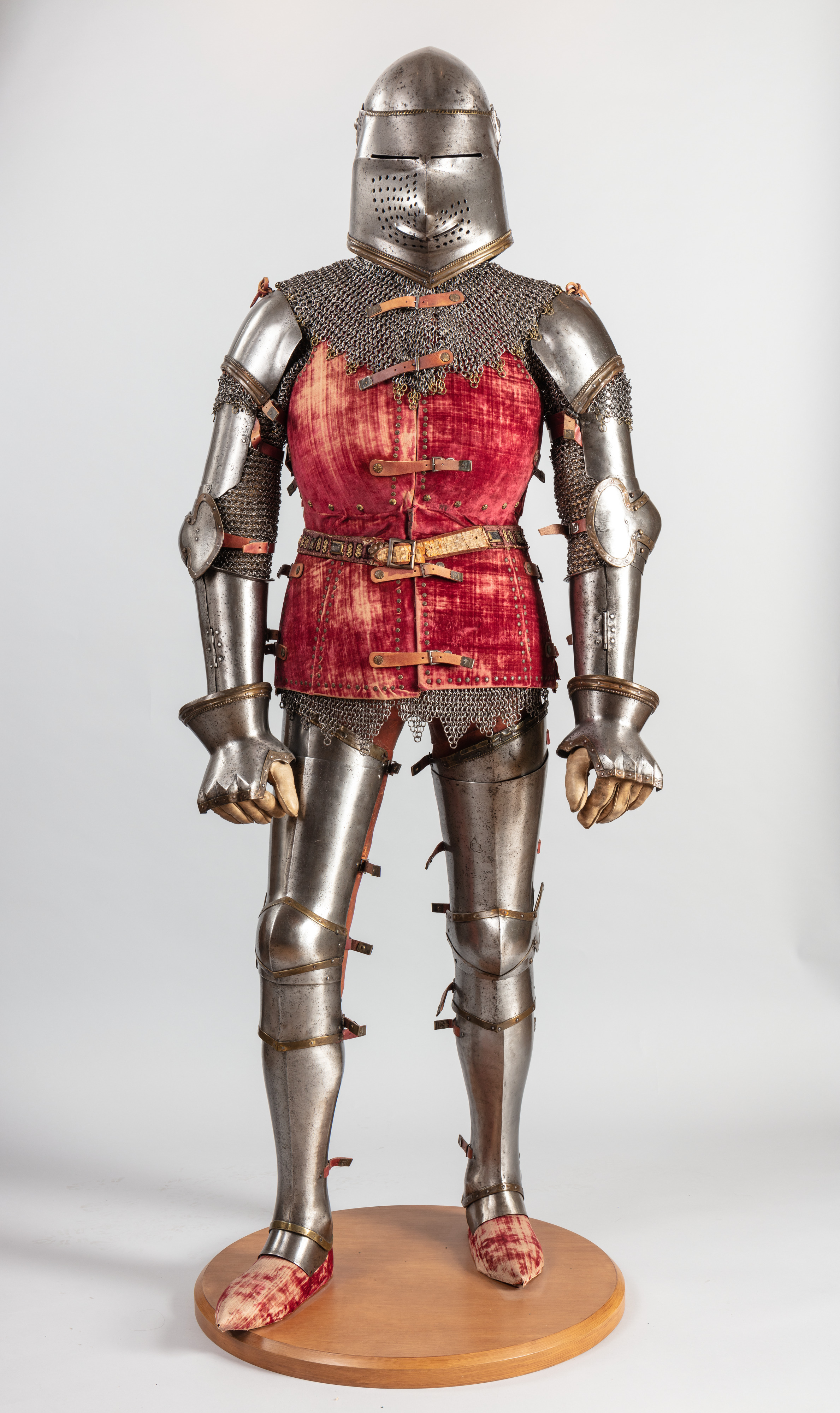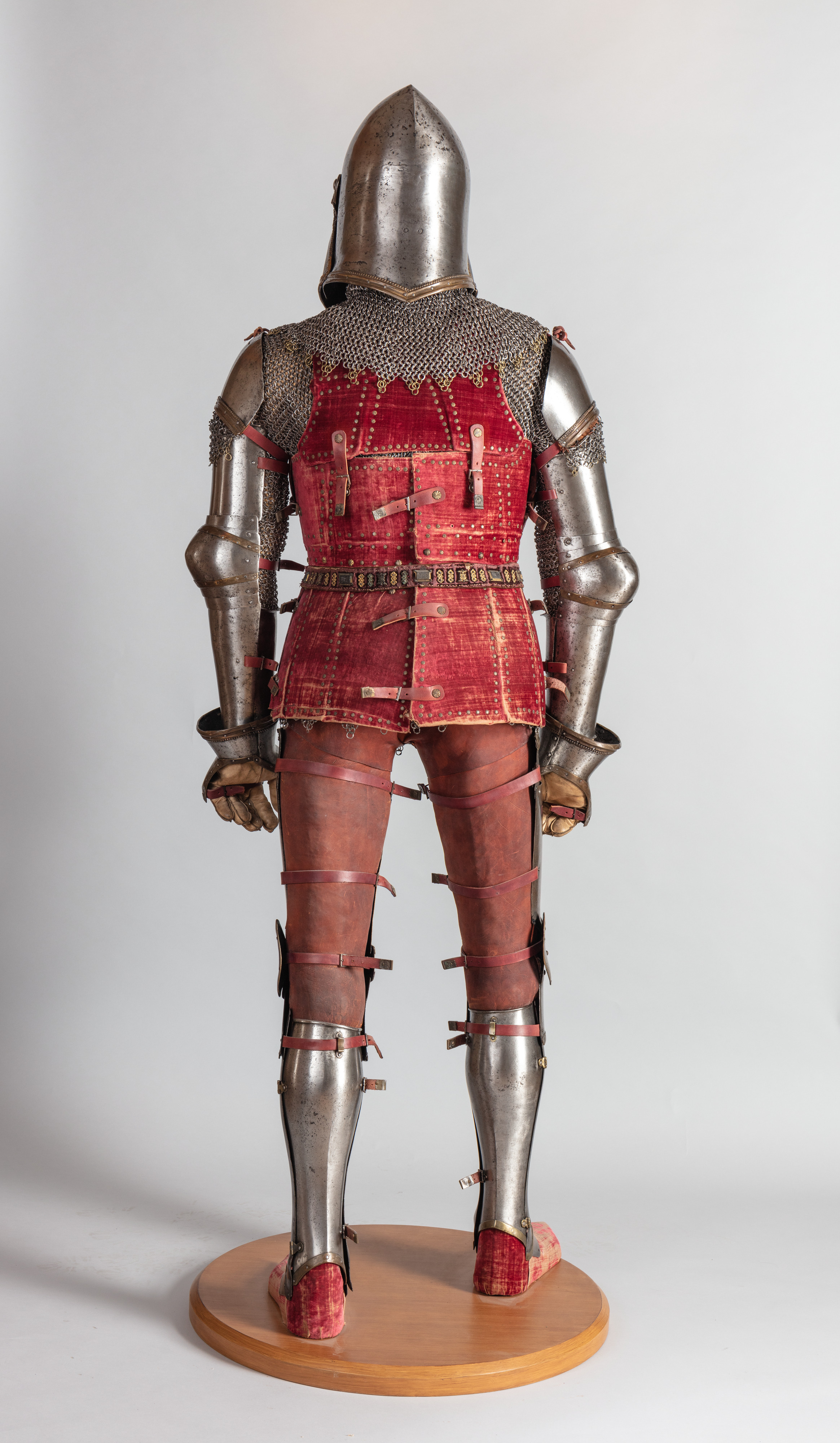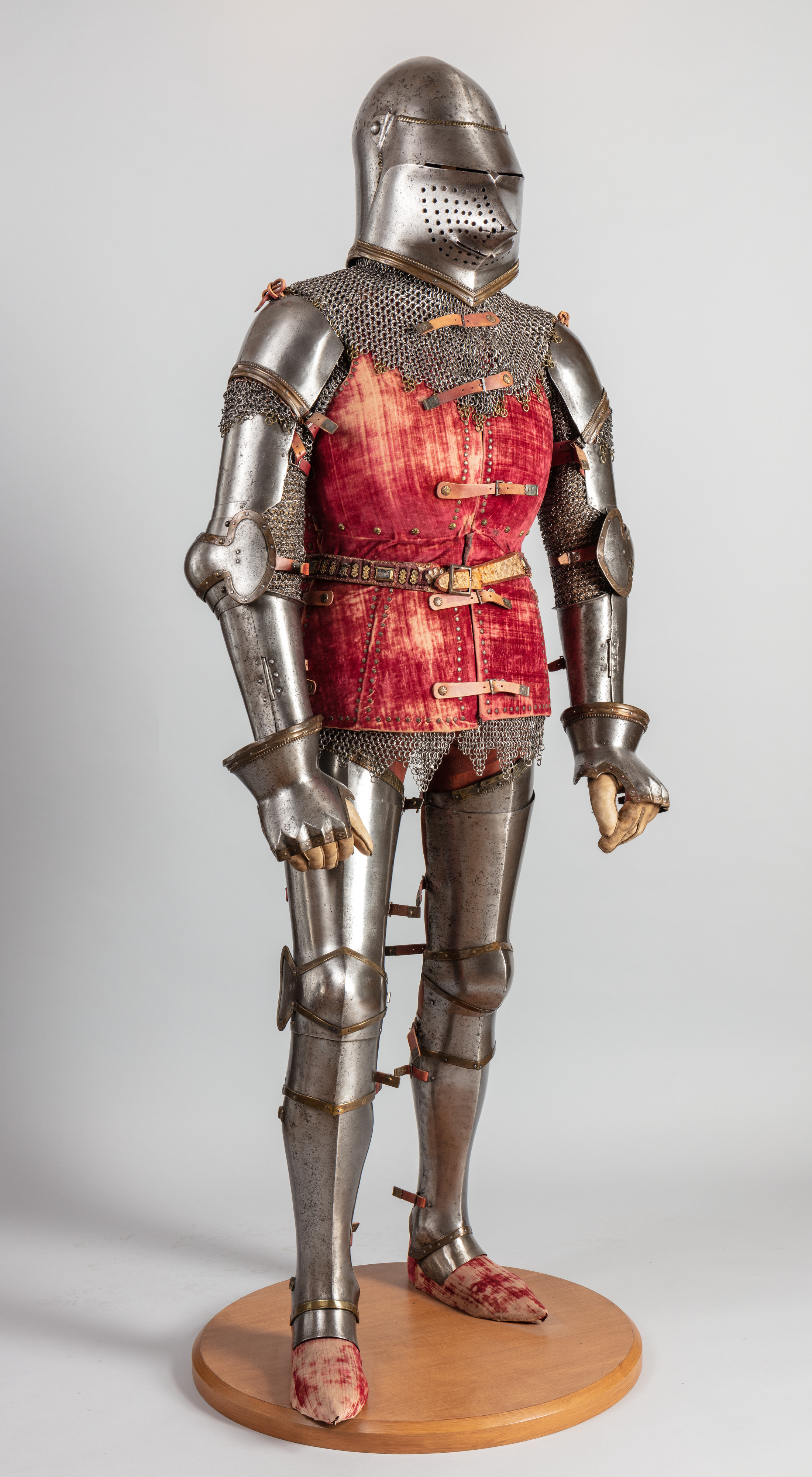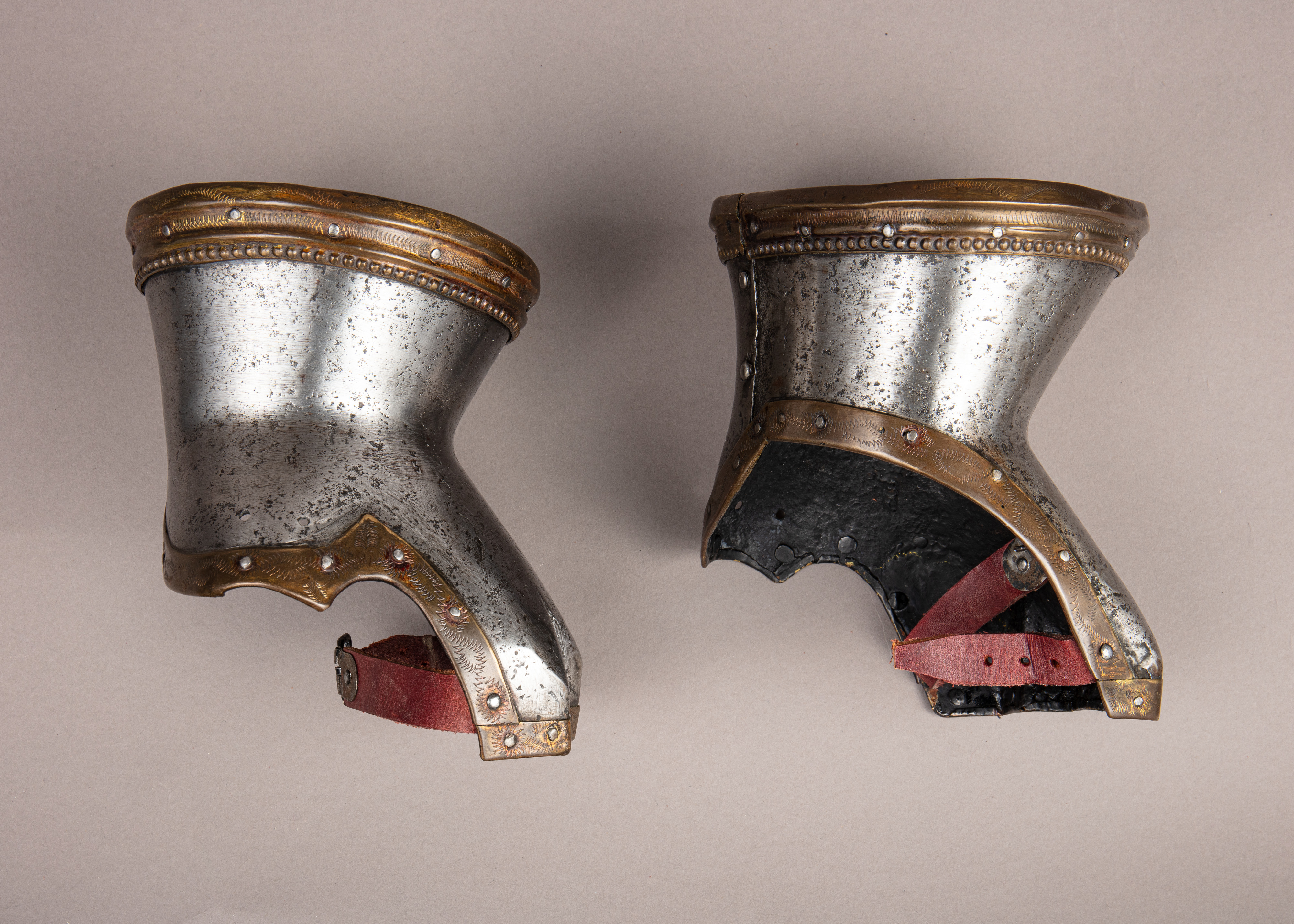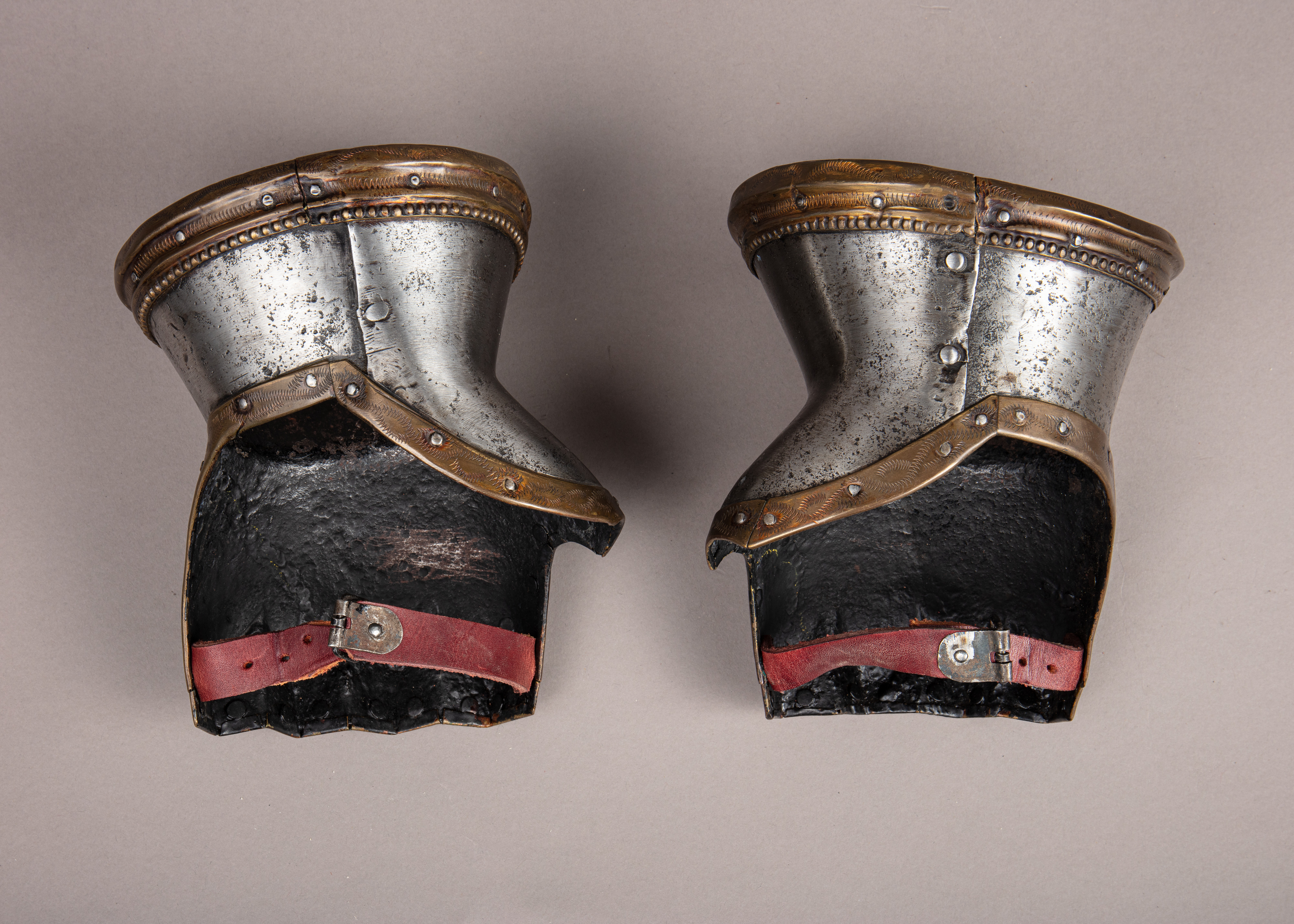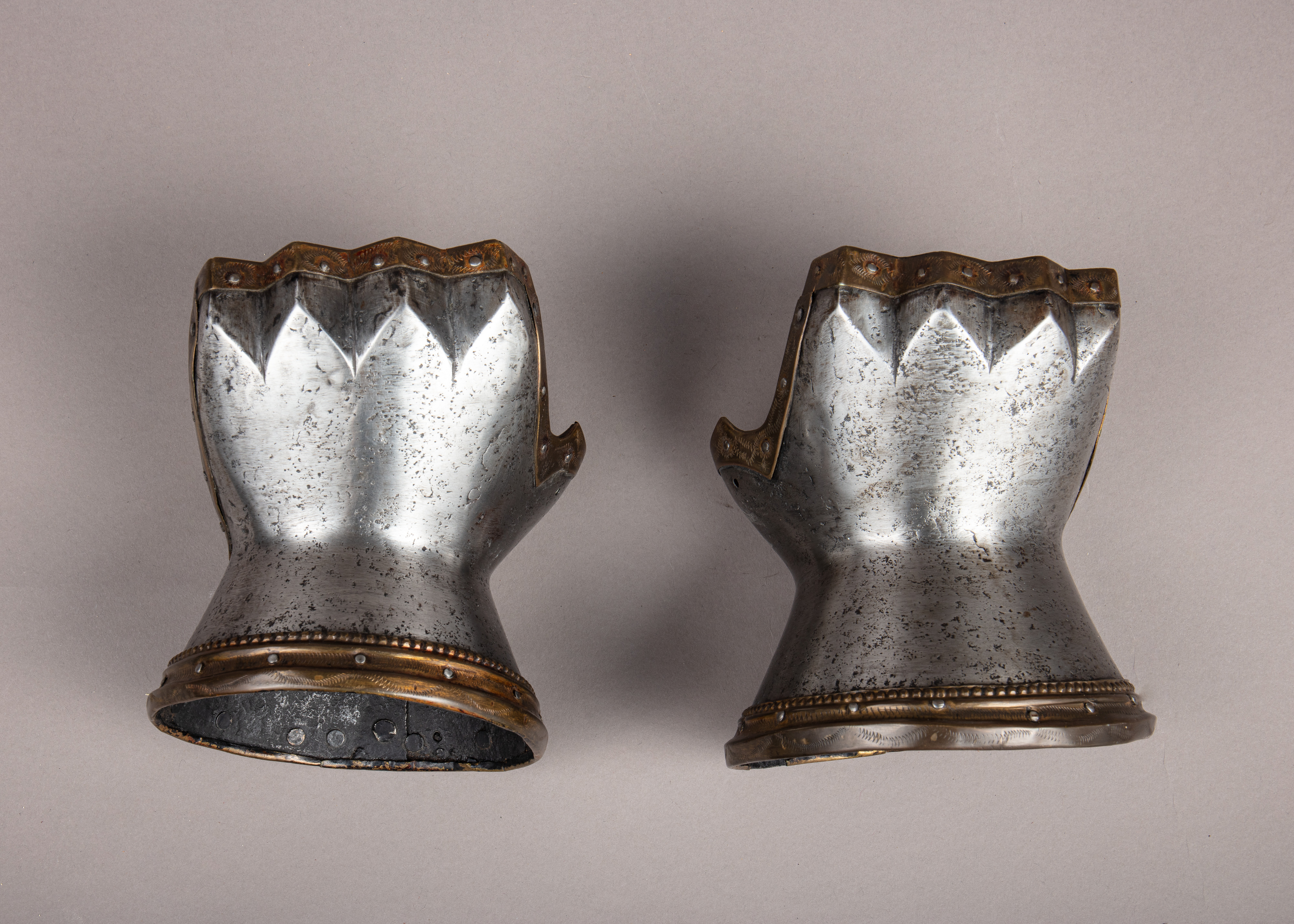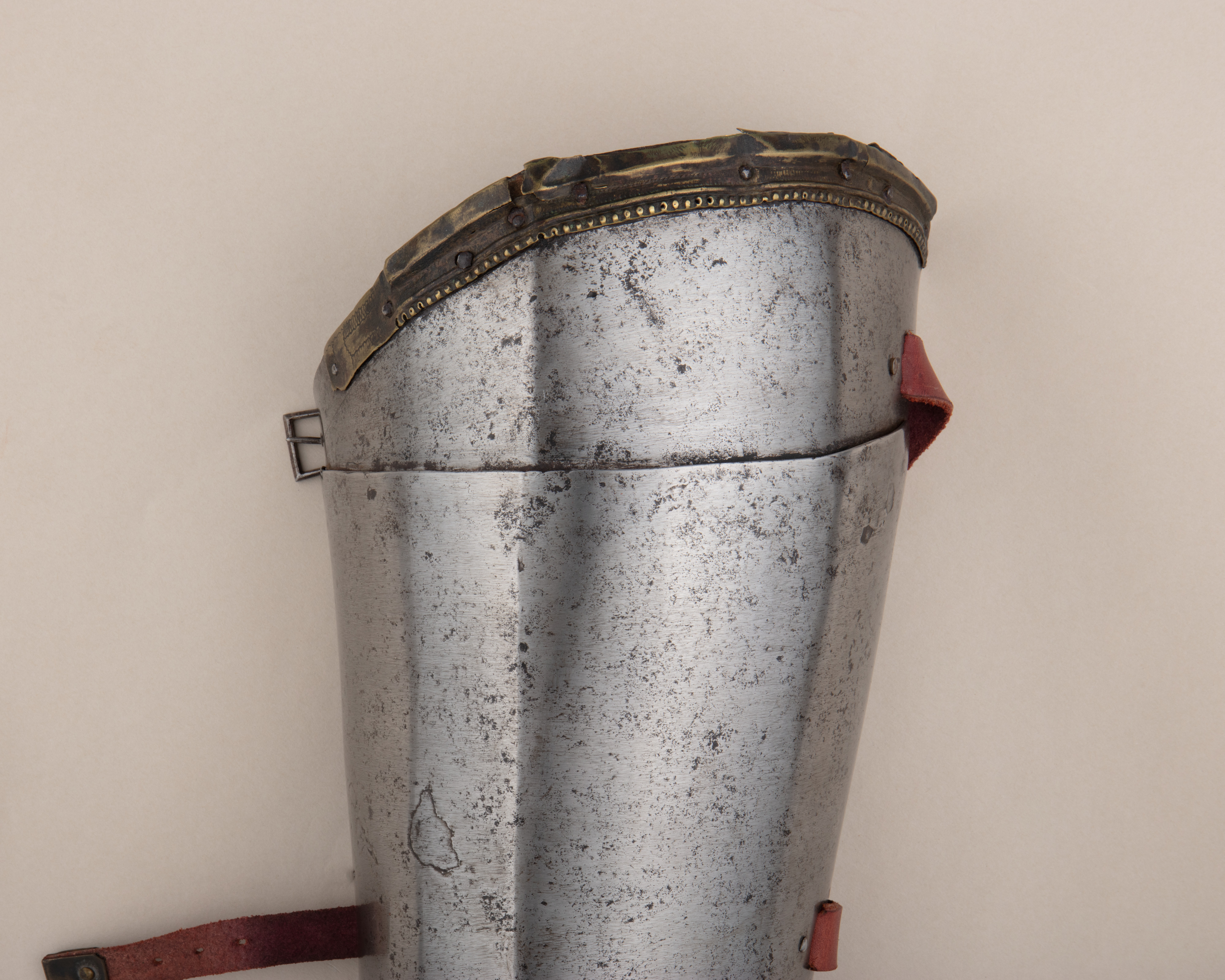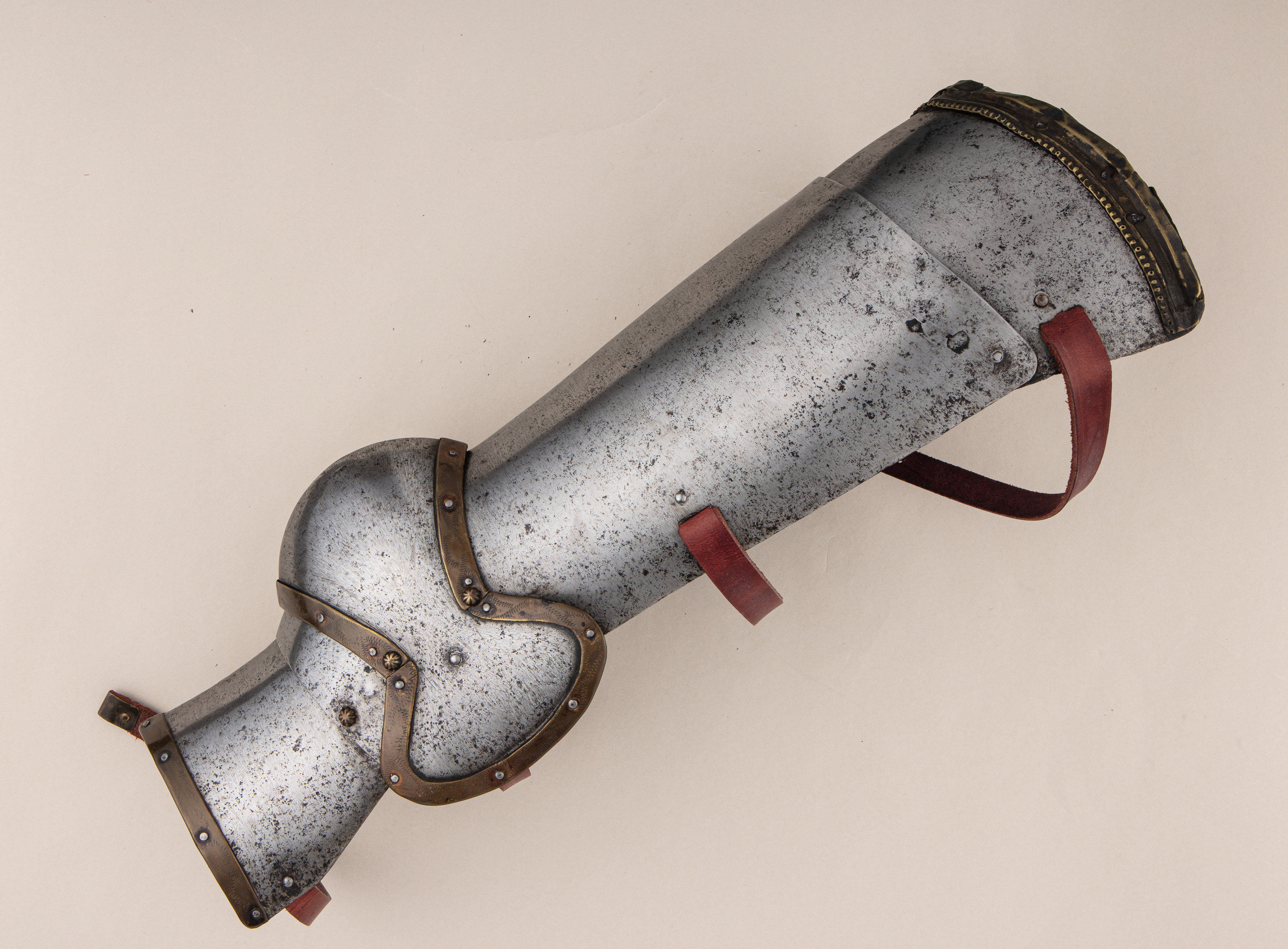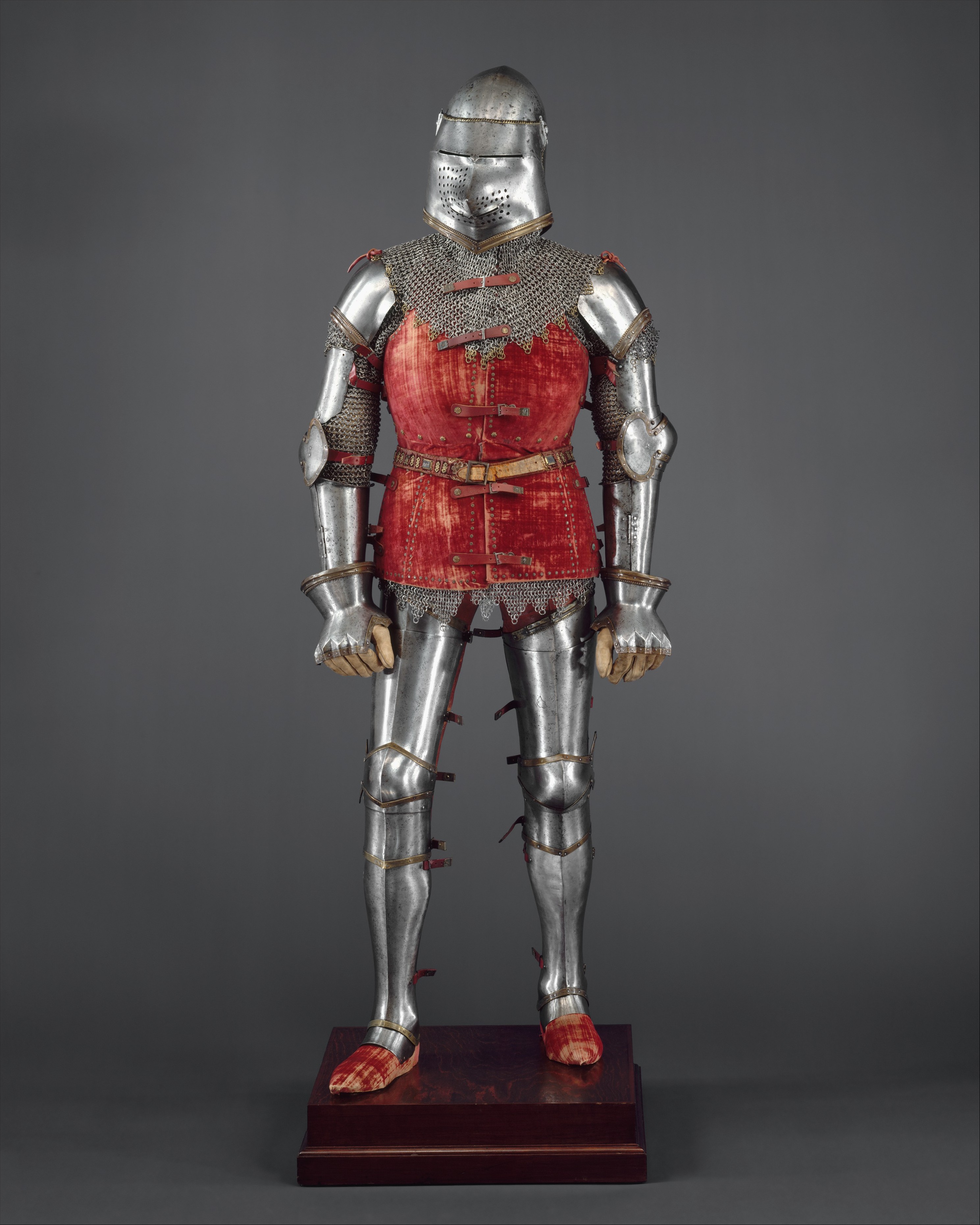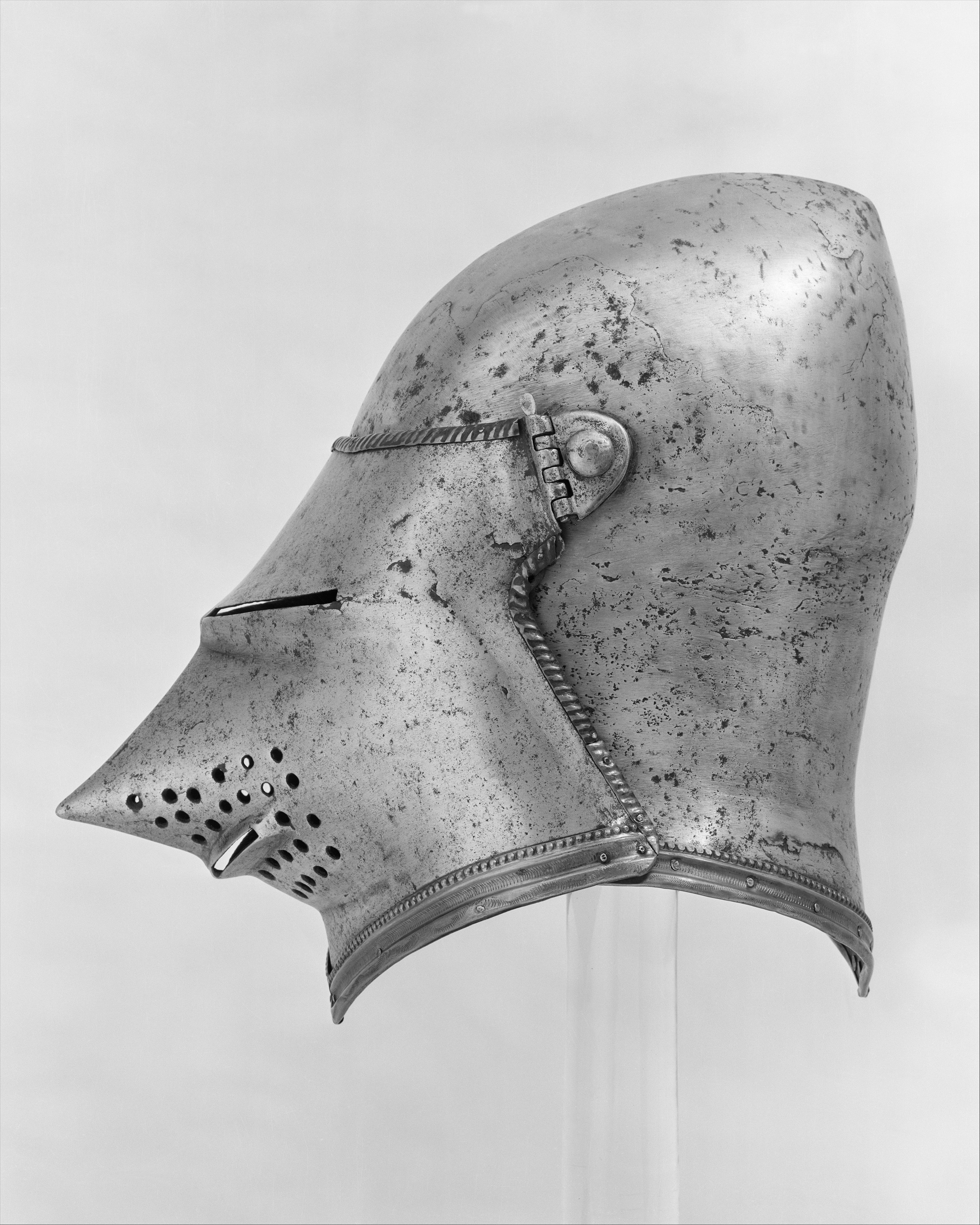Jump to content tickets Member | Make a donation
- The Collection
- The American Wing Ancient Near Eastern Art Arms and Armor The Michael C. Rockefeller Wing Asian Art The Cloisters The Costume Institute Drawings and Prints Egyptian Art European Paintings European Sculpture and Decorative Arts Greek and Roman Art Islamic Art Robert Lehman Collection The Libraries Medieval Art Musical Instruments Photographs Antonio Ratti Textile Center Modern and Contemporary Art
Crop your artwork:
Scan your QR code:
Gratefully built with ACNLPatternTool
Italian
On view at The Met Fifth Avenue in Gallery 373
This armor was assembled and restored in the 1920s using individual elements that had been discovered in the ruins of the Venetian fortress at Chalcis, on the Greek island of Euboea, which had fallen to the Turks in 1470. The purpose was to present a full armor of the style worn about 1400, a period from which no complete armors survive. Distinctive features are the early form of brigandine (a torso defense constructed of numerous overlapping plates riveted inside a doublet) with two large breast halves and brass borders at the edges of the exposed plates. Portions of the brass at the top edge of the left cuisse (thigh defense), the lower edges of the right greave (lower leg defense), and the visor are genuine; the remainder is restored. The helmet, a visored bascinet, is associated with the armor. The velvet covering of the brigandine dates from the early 20th century.
0:00
0:00
View Transcript
Open Access
As part of the Met's Open Access policy, you can freely copy, modify and distribute this image, even for commercial purposes.
API
Public domain data for this object can also be accessed using the Met's Open Access API.
- Download image













This artwork is meant to be viewed from right to left. Scroll left to view more.
Front, Overall
Back, Overall
3/4 Right, Overall
Side view of gauntlets
Inner side of gauntlets
Outer side of gauntlets
Outer side of gauntlets
Left thigh and knee defense (n)
Left thigh and knee defense (n)
Left thigh and knee defense (n)
Arm defenses (j, k)
Overall
Helmet, left profile
Artwork Details
Use your arrow keys to navigate the tabs below, and your tab key to choose an item
Title: Armor
Date: ca. 1400–1450 and later
Culture: Italian
Medium: Steel, copper alloy, textile, leather
Dimensions: H. 66 1/2 in. (168.9 cm), Wt. 41 lb. (18.6 kg)
Classification: Armor for Man
Credit Line: Bashford Dean Memorial Collection, Gift of Helen Fahnestock Hubbard, in memory of her father, Harris C. Fahnestock, 1929
Accession Number: 29.154.3
Learn more about this artwork
Armor—Function and Design
Identify moveable and static features of armor as well as functional and symbolic surface details and examine similarities and differences between human and animal "armor" through classroom viewing questions. Enhance the lesson with a sketching activity based on an English suit of armor in The Met collection.
Timeline of Art History
Essay
Arms and Armor - Common Misconceptions and Frequently Asked Questions
Essay
Arms and Armor in Renaissance Europe
Essay
Fashion in European Armor
Essay
Techniques of Decoration on Arms and Armor
Essay
The Decoration of European Armor
Chronology
Italian Peninsula, 1000-1400 A.D.
Chronology
Italian Peninsula, 1900 A.D.-present
Related Artworks
- All Related Artworks
- In the same gallery
- Arms and Armor
- Armor
- Copper
- Copper alloy
- Costume
- Iron alloy
- Iron and iron alloy
- Leather
- Metal
- Steel
- Textiles
- From Europe
- From Italy
Elements of an Italian Light-Cavalry Armor alla Tedesca (in the German Fashion)
ca. 1510
Field Armor of King Henry VIII of England (reigned 1509–47)
ca. 1544
Armet
Stamped with the armorer's name, LIONARDO (Italian, probably active in Milan, ca. 1440)
ca. 1440
Burgonet
Filippo Negroli (Italian, Milan ca. 1510–1579)
dated 1543
Armor of Emperor Ferdinand I (1503–1564)
Kunz Lochner (German, Nuremberg, 1510–1567)
dated 1549
Resources for Research
The Met's Libraries and Research Centers provide unparalleled resources for research and welcome an international community of students and scholars.
The Met Collection API is where all makers, creators, researchers, and dreamers can connect to the most up-to-date data and public domain images for The Met collection. Open Access data and public domain images are available for unrestricted commercial and noncommercial use without permission or fee.
Feedback
We continue to research and examine historical and cultural context for objects in The Met collection. If you have comments or questions about this object record, please complete and submit this form. The Museum looks forward to receiving your comments.
Arms and Armor at The Met
Collecting, preserving, researching, publishing, and exhibiting distinguished examples representing the art of the armorer, swordsmith, and gunmaker.
